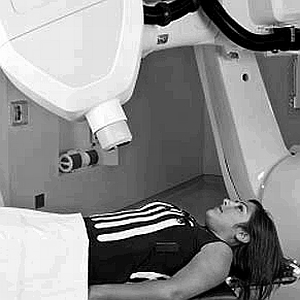 The benefits of screening younger women for breast cancer have been rejected by an influential advisory panel in the United States which has recommended rising the screening age from 40 to 50.
The benefits of screening younger women for breast cancer have been rejected by an influential advisory panel in the United States which has recommended rising the screening age from 40 to 50.
The new guidance, from the US Preventive Services Task Force, also recommends that women age 50 to 74 should have mammograms every two years, rather than every year, while doctors should stop teaching women to examine their breasts on a regular basis.
The advice moves the US closer to the British system, where women are screened every three years from 50. The NHS programme, which was started in 1990, is being expanded to the age of 47 from 2012 to ensure that all women are screened by the time they reach 50.
The system of screening for breast cancer in both the US and UK has come under criticism in recent years, with some doctors warning that women do not receive enough information about the risks as well as benefits.
In February, 23 leading health professionals wrote to The Times criticising the Government’s “unethical” failure to provide women with the full facts in the NHS programme of checks for all women. The signatories said that many healthy women are subjected to overdiagnosis of benign conditions and may undergo unnecessary surgery, radiotherapy or chemotherapy. If cancers diagnosed by screening were left to their own devices, many “might never appear in a woman’s natural lifespan”, they added.
The US recommendations, which do not apply to a small group of women with unusual risk factors for breast cancer, reverse longstanding guidelines and are aimed at reducing harm from overtreatment, the Preventive Services Task Force said.
The task force is an independent panel of experts in prevention and primary care appointed by the US Department of Health and Human Services.
Dr Diana Petitti, vice chairwoman of the task force and a professor of biomedical informatics at Arizona State University, said that the guidelines were based on new data and analyses and were aimed at reducing the potential harm from overscreening.
The report concludes that the modest benefit of mammograms — reducing the breast cancer death rate by 15 per cent — must be weighed against the harms. The task force concluded that one cancer death is prevented for every 1,904 women age 40 to 49 who are screened for 10 years, compared with one death for every 1,339 women age 50 to 74, and one death for every 377 women age 60 to 69.
Dr Petitti told The New York Times that the new guidelines would be a shock for many women in the US, but were demanded by the evidence. “We have to say what we see based on the science and the data,” she said.
The US National Cancer Institute said it was re-evaluating its guidelines in light of the task force’s report, but the American Cancer Society and the American College of Radiology said they were staying with their guidelines advising annual mammograms starting at age 40.
A spokeswoman for the NHS Screening Programme said that the report’s conclusions more closely reflect UK guidance. For women in their 40s, the cancer risk was small while the breast tissue remains much denser, reducing the accuracy and benefits of X-rays.
She added that the NHS Breast Screening Programme recommends that women be breast aware, but not routine self-examination. Women’s breasts were all very different and what might be normal for one woman may not be normal for another.
The Department of Health’s policy on breast awareness, which has strong support from the nursing and medical professions, encourages women to check their breasts for what is normal for them but does not recommend routine self-examination to a set technique.
She said there was no scientific evidence to show that a formally taught, ritual self-examination, performed at the same time each month, reduces the death rate from breast cancer or was more effective than a more relaxed breast awareness.
Richard Winder, deputy director of the NHS Cancer Screening Programmes, said: “The United States Preventative Task Force research recommendations are similar to those of our screening programme. We will be interested to review these fully in due course.”
